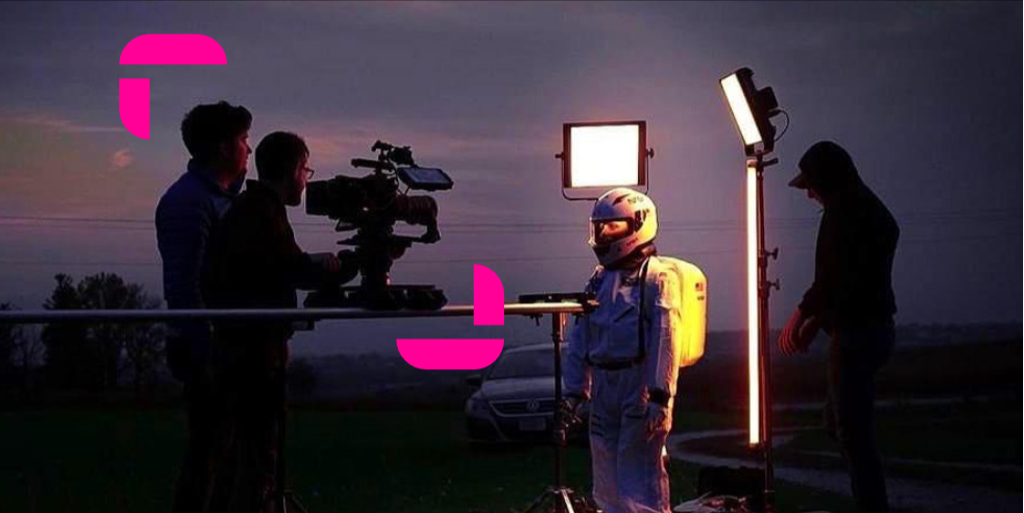Download the full guidelines
ScreenSkills Select hybrid work experience
The guidelines were developed in partnership with key screen industry and educational figures to address concerns about the impact of new, post-Covid remote or hybrid working practices on work placements and work experience.
They are for course leaders and employability engagement staff in the Higher and Further Education sectors across the UK, providing a best practice framework for hybrid work experience undertaken by 18+ students.
They are also intended as a guide for employers when structuring their own hybrid work experience programmes.
There are seven core steps which pave the way for a successfully and mutually beneficial work experience activity:
- Preparation - preparing the student with professional and soft skills to enable them to enjoy a successful hybrid work experience placement
- Technology and platform - ensuring the student has the appropriate technology, software, and online platform to fully take part
- Recruitment and selection – establishing clear communication on recruitment and selection practices between all stakeholders and to enhance and inspire students to take part
- Onboarding and induction - maintaining productive and open channels of communication to ensure the student remains engaged
- Supervision and mentoring - supporting the student from an educational and pastoral perspective during their placement
- Pastoral care and wellbeing - working remotely can be an isolating experience so it is vital students maintain engagement and are looked after in terms of their wellbeing
- Projects, modules and learning activities - ensuring the activities undertaken during the placement successfully develop the students’ skills and experience
ScreenSkills Select is supported by the BFI with National Lottery funds as part of its Future Film Skills strategy.
Amy Backwell, Emerging Talent Specialist at Industrial Light & Magic UK Ltd, said: “When it comes to choosing and pursuing a career in visual effects, we recognise that work experience and internships can be extremely valuable. There is a variety of exciting work out there at the moment, especially for emerging talent. With the talent bar being extremely competitive, it’s never been more important to ensure we offer quality emerging talent programmes that can feed into our talent pipeline.
“We recognise the value in providing candidates with real industry experience before they graduate so they are aware of the pace, technical skills and professional skills required to be successful in an entry-level role. At ILM we are extremely keen to contribute to these guidelines as we believe they will become an excellent tool and resource that employers and organisations throughout the industry can use in order to grow our talent pool within the UK.”
Dr Kingsley Marshall, Head of Film & Television at Falmouth University, said: “From teaching undergraduate and postgraduate students for over a decade, I know that their first taste of working in the industry is absolutely vital in giving them the confidence to make the leap into a career in the field once their studies have finished. Given how work experience is delivered has had to adapt to the changing world of production, these guidelines will prepare students from all backgrounds and provide them with the confidence in the first steps of their careers within the screen industries.”
Samantha Babrovskie, Senior Lecturer in Production Design for Film and TV, said: “The aim of devising the Hybrid Work Experience Guidelines was to share existing good practice within remote and in situ screen industry student placements and build on this to develop a supportive, useful and informative framework for industry, educators and students to refer to. Identifying the seven steps in developing, delivering and supporting Hybrid Work Experience provides a practical guide for both educators and screen industry professionals in creating meaningful, engaging and enjoyable student work placements.”
Victoria Trachy, Head of Vocational Skills at ScreenSkills, said: “In the changing world of working practices in our industry, coupled with the need to accelerate the pace of new talent joining us, getting work experience right for everyone has never been so important.
“These guidelines, developed in full partnership with the industry and education, will provide additional support in the development of good practice in this crucial area. The seven core key areas provide clear direction and detail and can only be to the advantage to the screen industries, educators and importantly, students too. The better the work experience, the more likely students will become employees and go onto enjoying successful careers.
“We developed these guidelines as part of our key role in continuing to drive a self-improving sector and to support the increase in industry-ready students.”
Download the full guidelines
ScreenSkills Select hybrid work experience
